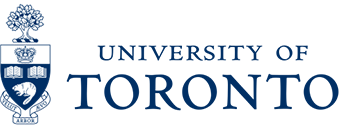Mandatory Content of Training
| Description | Duration | Sites in which this training may be taken |
|---|---|---|
PGY1 |
||
|
Prep Camp |
4 weeks |
|
|
Emergency Medicine |
4 weeks |
St. Michael’s Hospital or St. Joseph’s Health Centre or Sunnybrook Health Sciences Centre |
|
General Surgery |
12 weeks |
St. Michael’s Hospital/Michael Garron Hospital/St. Joseph’s Health Centre |
|
Plastic Surgery – Pediatric |
8 weeks |
Hospital for Sick Children |
|
Plastic Surgery – Adult |
12 weeks |
Sunnybrook Health Sciences Centre |
|
ICU |
8 weeks |
Mt. Sinai Hospital |
|
Anesthesia |
4 weeks |
Toronto Western Hospital |
PGY2 |
||
|
Burns |
3 blocks |
|
|
Plastic Surgery |
3 blocks |
St. Joseph Health Centre or Sunnybrook Health Sciences Centre |
|
Orthopaedic Surgery |
2 blocks |
St. Joseph Health Centre or Sunnybrook Health Sciences Centre or St. Michael’s Hospital |
|
ENT |
1 block |
Sunnybrook Health Sciences Centre |
|
Derm MOHS |
1 block |
Women’s College Hospital |
|
Hand and Upper Extremity Surgery |
3 blocks |
Toronto Western Hospital |
|
Plastic Surgery/Oncologic Reconstruction and Microsurgery |
4 blocks |
Toronto General Hospital |
|
Plastic Surgery/Adult Craniofacial, Trauma, Hand and Upper Extremity Surgery |
4 blocks |
Sunnybrook Health Sciences Centre |
Elective Content of Training
| Description | Duration | Sites in which this training may be taken |
|---|---|---|
|
Plastic Surgery |
5 rotations of |
The Resident will rotate through 5 of the following 7 plastic surgery rotations:
|
The Junior Years – PGY1 and PGY2
During the first year of training, our residents are part of the Surgical Foundations program in the Department of Surgery. The primary objectives are to teach the resident core principles of surgery and to prepare the resident for the Surgical Foundations examination.
The PGY1 residents in our specialty participate in all of the activities of Surgical Foundations at the University of Toronto. These activities are protected down time. These activities include:
Principles of Surgery Didactic Seminars
These are held every Tuesday morning at Mount Sinai Hospital from 7:30-9:00am. The Director of Surgical Foundations and the Director of the seminars meet annually to make sure that the Royal Collage goals and objectives are being met.
ATLS Course
This is compulsory for all PGY-1s. It is held at St. Michael’s Hospital.
Surgical Skills Lab
This is a hands-on course for all PGY-1 Residents. It is held every Tuesday from 9:00-11:00am after the POS lectures.
Resident as Teacher
This is a one-day retreat in January for all PGY-1 Residents. It teaches Residents how to be better teachers when they teach clinical clerks.
Postgraduate Core Education Modules (PGCoreEd Modules)
The Postgraduate Medical Education Office (PGME) Core Curriculum Web Initiative – called PGCorEd is a set of web-based e-learning modules, which covers the foundational competencies for the University of Toronto postgraduate trainees. PGCorEd is designed to be responsive to the practical realities of residency training by being available when and where the resident needs the information. The following modules are currently offered:
- End of Life Care
- Resident as Leader
- Communicator 1: Communication Basics
- Communicator 2: Essentials for Communication
- Resident as Learner and Teacher
- Resident as Collaborator
- Resident as Professional
- Patient Safety
Surgical Foundations Exam
Dr. Mark Wheatcroft, the Director of the Surgical Foundations lectures, oversees a practice Examination in February each year. There is a session after the exam to review the answers. The results of the Exam are fed back to the students, their Program Directors and the Director of Surgical Foundations. Dr. Wheatcroft updates the bank of questions for this exam annually.
Due to privacy issues, the results of the Royal College Surgical Foundations exam are not disclosed. Residents who fail the exam are encouraged to come forward. There is a remediation process in place for Residents who have failed the Surgical Foundations exam. A resident is not permitted to take the Royal College Specialty Examination until they have successfully completed the Surgical Foundations Examination.
All PGY-1 and 2 Residents also attend academic activities within the Division of Plastic, Reconstructive & Aesthetic Surgery such as Journal Club, M&M Rounds, Professor Rounds, Visiting Professor, research days and didactic seminars.
The Senior Years – PGY3 PGY4 PGY5
There are 3 senior plastic surgery rotations that provide a community experience. These include St. Joseph’s Health Sciences Centre, Michael Garron Hospital, and North York General Hospital. All Residents will rotate through a minimum of two of these three rotations for a period of 4 months each.
Residents are provided with increasing responsibility based on preceptor observation of resident ability. During the two Surgical Foundations years, residents participate on several off service rotations. During the ten on service months, residents are taught how to assess patients and to perform focused history and physical exams. They are taught basic surgical principles and begin to learn how to perform common surgical procedures. This is done under direct faculty or fellow supervision.
During the specialty core years (PGY3-5) the resident takes on a greater degree of responsibility. Clinically, residents are provided more independence in the clinics and operating room with increasing years of training. Generally, the more technically demanding services such as microsurgery and hand surgery are assigned in the 4th or 5th years of training.
Senior residents assume an increasing role as a Leader as they are responsible for completion of call schedules and daily assignment of house staff. At several hospitals, the resident is responsible for coordinating the schedule of weekly teaching rounds such that topics are selected to address the learning needs of medical students, plastic surgery residents and off service residents.
Senior Year Courses
- DUKE Flap Course for PGY4s

